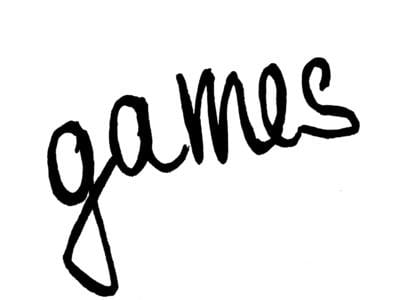You may think of studying as sitting at a desk with your book open, taking notes, but this isn’t the most effective way for most children to learn. Children can learn through playing games and having fun. Even the most basic games can help to teach skills that the child needs to learn, including gross and fine motor skills in addition to cognitive abilities and subject knowledge.
Function
Play is essential to the development of a child, according to the University of California-Davis Cancer Center and U.C. Davis Children’s Hospital. Games can teach subject matter–such as a memory game that matches opposites in a foreign language or a board game that teaches about U.S. geography–but they also teach other important skills for life, such as how to socialize with others and how to be a graceful winner or loser. You can also use games to teach or improve physical coordination.
Types
Physical games and sports tend to focus on teaching gross motor skills and being a part of a team. Board games teach a wide variety of skills. For younger children, a game such as Candy Land can help teach colors, while Hi-Ho Cherry-O teaches counting. Older children can learn to add with a game such as Yahtzee or build vocabulary with a game such as Scrabble or Boggle. Computer games can also teach important skills–phonics, math or foreign languages, for example–by leading your child through a series of progressive lessons.
Benefits
If your child is trying to study by simply reviewing flash cards or looking over his notes, he’s not going to have fun and will not want to stick with it. However, if he learns the material while playing a game, he’s able to “study” much longer. Additionally, games can stimulate different parts of the brain, which may make for better recall.
Considerations
Most commercial games focus on learning general skills, such as phonics or geography. If your child needs to learn something very specific–such as the names of the presidents or the state capitals–for a test, you can create your own game around this knowledge. For example, you could let her earn a point for saying the correct capital and then earn another point for throwing a ball into a basket.
Misconceptions
Some worry that video games are not good tools for learning and that they instead foster violence or attention problems in children. This largely depends on the type of games that your child plays. If you choose games that have a focus on teaching skills in a fun way, your child can learn these concepts. Though you shouldn’t rely solely on video games, it’s a good addition to a well-rounded curriculum, at home or at school.
Photo Credit
- games image by Ewe Degiampietro from Fotolia.com





